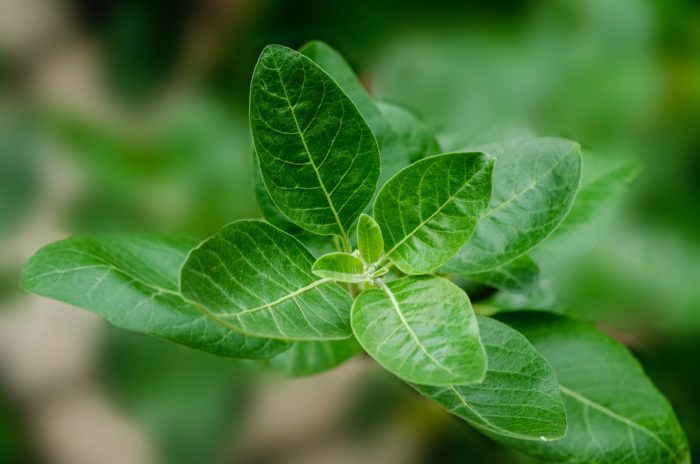Elephant is not your doctor or hospital. Our lawyers would say “this website is not designed to, and should not be construed to provide medical advice, professional diagnosis, opinion, or treatment to you or any other individual, and is not intended as a substitute for medical or professional care and treatment. Always consult a health professional before trying out new home therapies or changing your diet.” But we can’t afford lawyers, and you knew all that. ~ Ed.
~
Navigating the surge in COVID-19 numbers, managing hybrid work situations, providing childcare, taking care of the elderly, making summer plans while keeping fingers crossed, and being caught in the space of not knowing what normalcy will look like…has cumulatively taken a toll on our mental well-being.
While some people get anxious, others might feel agitated. Insomnia, depression, nervous twitch, inability to focus, restlessness…they have become all too common.
Ever feel that your mind chatter won’t stop? Your body might be exhausted, but your mind feels full of thoughts? According to Ayurveda, physical, emotional, and mental stress are one of the prime reasons for a host of health, social, economic, family, and relationship problems.
There are several ways to take care of your mental well-being this Mental Health Awareness Month. Ayurveda teaches us to first work on our diet and lifestyle. What we eat impacts how we think and feel. Exercising, spending time in nature, connecting with a community of like-minded people can nourish our mental health. But if you need a little extra help, Ayurvedic herbs can help you calm down, relax, and lower stress. The healing capacity of herbs, according to Ayurvedic philosophy, has to do with their qualities and interactions with the human mind, body, and spirit. None of these benefits can be derived by artificial means.
Did you know that compared to food or spices, Ayurvedic plants have a stronger action on the body? Such actions allow the plant to stabilize the doshas and even reverse pathophysiological processes. Ayurvedic herbs can be taken internally or externally. They are available in the markets as capsules or in powdered form or in oils.
Here are five herbs that can help nourish the mind.
1. Ashwagandha
Ashwagandha (Withania somnifera, fam. Solanaceae) is commonly known as “Indian Winter cherry” or “Indian Ginseng.” It is one of the most important herbs of Ayurveda used as a Rasayana (an herbal or metallic preparation that promotes a youthful state of physical and mental health and expands happiness) for its wide-ranging health benefits. Ashwagandha is part of a class of plants called adaptogens known for their health benefits. It enhances the body’s resilience to stress. It boosts the function of the brain and nervous system. Ashwagandha is also credited for improving memory. It assists in calming the mind and promoting restful sleep. It is a nourishing nervine as opposed to a heavy sedative.
2. Brahmi
It’s another important herb that supports the proper function of the nervous system and slows the effect of aging. Brahmi relieves both anxiety and stress. Due to its adaptogenic qualities, Brahmi promotes energy during the daytime while supporting sound, restful sleep at night. Basically, Brahmi is a memory-enhancing herb and can have a healing effect on the brain. Consuming Brahmi can help prevent conditions like Alzheimer’s disease, which in the later years of your life, can affect your memory. Brahmi helps create a more balanced emotional state. Brahmi helps to improve memory, learning ability, and concentration. It is used in mental disorders (especially anxiety and depression), fatigue, lethargy, senility, epilepsy, mania, and hysteria.
3. Calamus (Vacha)
In Sanskrit, vacha literally means speaking. It is a strongly aromatic, semi-aquatic perennial herb with a ginger-like stem, which spreads into the ground. This herb helps to stimulate intelligence and improves memory, which resolves stammering and makes speech clear. In Ayurveda, Vacha is known as a rejuvenating herb because of its effect on the nervous system. It stimulates the brain cells, cerebral circulation, intelligence, expressions, sharpens memory, and improves learning abilities in children. In adults, Vacha has been described as an herb that rejuvenates the brain, calms the nervous system, and soothes worries.
4. Jatamansi
It is an essential brain nervine tonic and a memory enhancer, which has the innate ability to enhance the body’s ability to sleep well. Due to its antioxidant property, it improves the brain function by preventing cell damage. It also acts as a brain tonic and combats the effects of day-to-day stress. According to Ayurveda, Vata governs all the movements of the body and nervous system. Anxiety is mainly due to Vata imbalance. Jatamansi helps to reduce the symptoms of anxiety. Jatamansi is an essential sedative that boosts overall relaxation. In brief, this herb is a great remedy to treat insomnia, sleep disorder, chronic fatigue, chronic stress, anxiety, epilepsy, and other nervous system disorders.
5. Shankhapushpi
The plant gets its name, shankhapushpi, because of its shankh or conch shaped flowers. Considered a powerful rejuvenator for the mind, it promotes memory, concentration, and intelligence. Shankhapushpi has been consumed for centuries as both a brain and nervine tonic. It is known to help combat anxiety, stress, and uplift the mood. Shankhpushpi has been said to improve the ability to recall and grasp power. It also helps reduce restlessness, uneasiness, and general mental stress. Due to its neuroprotective activity, Shankhapushpi can improve mental functions.
Ayurveda reiterates that herbs are integral to the web of life. Use these herbs wisely to handle stress and anxiety. But please refrain from buying and using Ayurvedic herbs without consulting with an Ayurvedic practitioner first. I’ll tell you why. Ayurveda teaches us that the same food and herb can work as nectar for one person and poison for another. It’s important to know what is best suited for your mind-body—both the herb as well as the dosage.
Recently, a colleague asked if she should take Ashwagandha because the online quizzes revealed that she was Vata imbalanced. She is not wrong in being presumptuous because many of these Ayurvedic herbs are available at health food stores and large retail brands. They are marketed as the best thing since sliced bread for stress relief. I did an Ayurvedic consultation for her, and it turns out this colleague has a high Pitta imbalance. Ashwagandha is a “heating” herb, which means it can aggravate Pitta. If she hadn’t reached out and started taking Ashwagandha, the herb might have done more damage than good in the long run.
Ayurveda offers customized healing for each individual. Ayurvedic plants are generally seen as safe and free from side effects, but improper usage can yield undesirable results. A few herbs have contraindications and might interfere with your prescription medication.
“Ayurveda is the science of life and it has a very basic, simple kind of approach, which is that we are part of the universe and the universe is intelligent and the human body is part of the cosmic body.” ~ Deepak Chopra
Disclaimer: The content is purely informative and educational in nature and should not be construed as medical advice. The information is not intended for use in the diagnosis, treatment, cure, or prevention of any disease. Please use the content only in consultation with an appropriate certified medical or healthcare professional. If you are nursing, taking medications, or have a medical condition, please consult with your health care practitioner prior to the use of any of these herbs. If you are looking for advice from a trained yogi and ayurvedic coach, contact me here.
~








Read 2 comments and reply